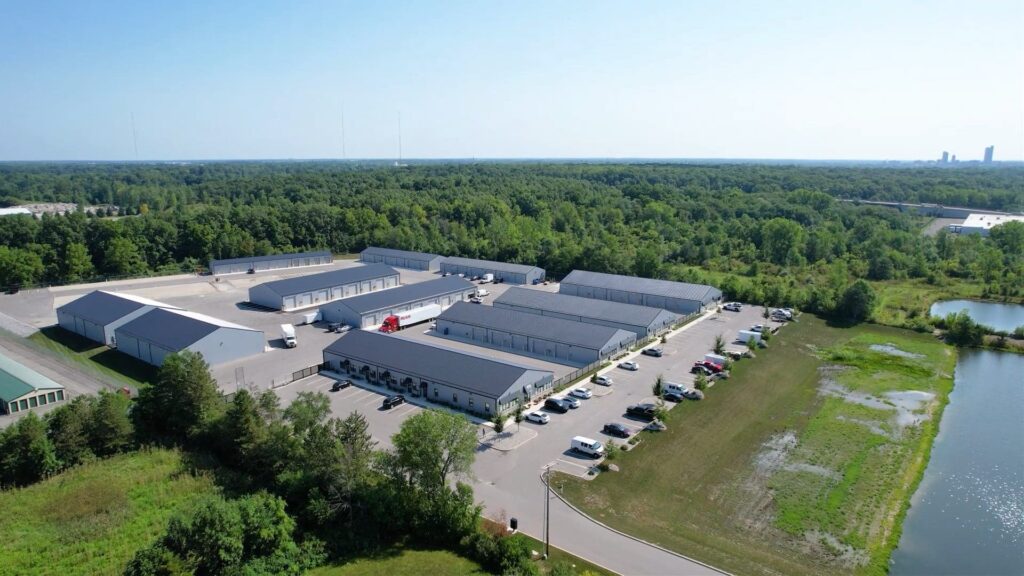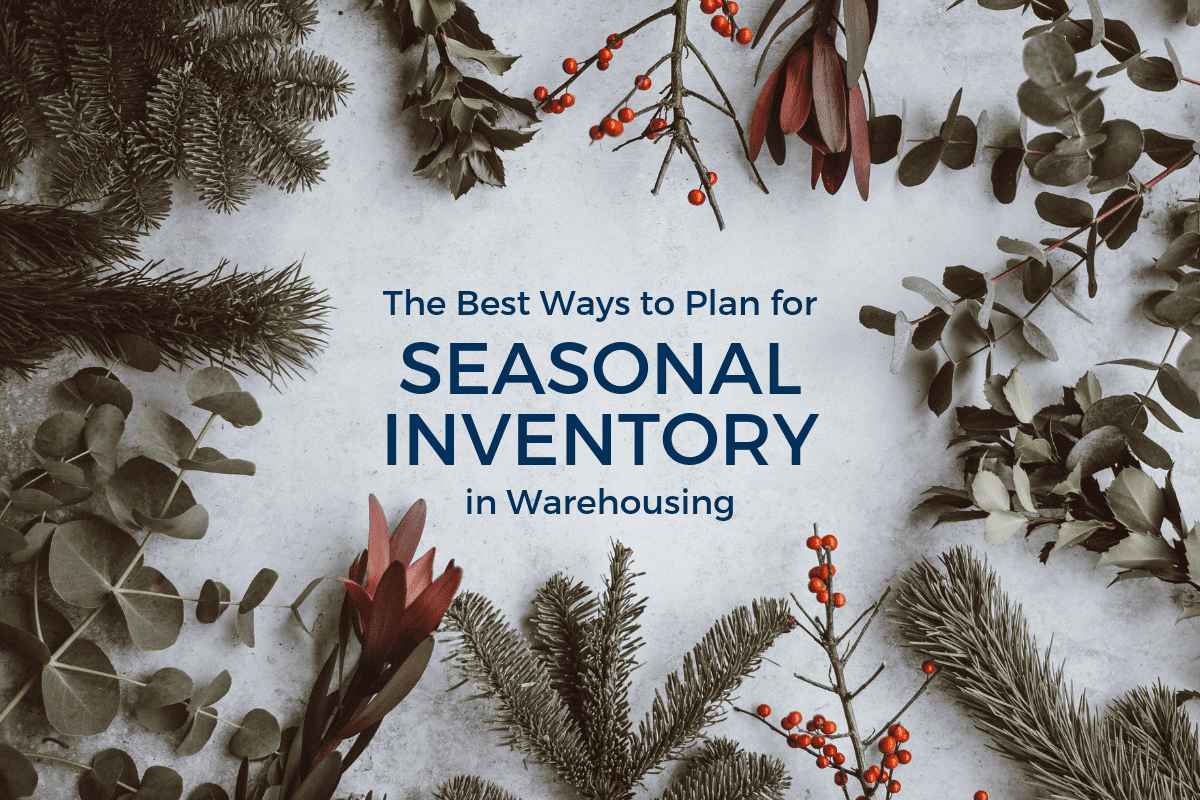- Warehouse Leasing Solutions
- Assessing Self-Storage Options
- Warehouse vs. Self Storage Rental
- Lease Warehouse Space with RISE Commercial District
- Frequently Asked Questions
Finding the best commercial storage solution is essential for optimizing operational efficiency and streamlining your business model. The right facility will also minimize costs, allowing for future growth.
Self-storage units and warehouse leasing options are two commercial storage and business solutions, each offering unique advantages. Understanding the nuances of each is key to choosing between warehouse and self-storage options.
Warehouse Leasing Solutions
Leasing a high-quality warehouse can be a game-changer for your business. These temporary premises can offer large commercial facilities, comprehensive amenities and invaluable business support.
Warehouse Functions
A standout feature of warehouses is the versatility they can provide according to your business needs. Here are some typical examples:
- Contractor storage: If you are a contractor, you can use warehouse space to store materials and large equipment, as well as to charge equipment. You can even use it as a clean and secure site for project preparation.
- Business storage solutions: Choosing to lease a warehouse is ideal for business storage, especially if you have an overflow of inventory or materials. This supplementary space is far more cost-effective for housing excess materials and growing inventory than physically expanding your existing premises.
- Office and storage facilities: Short- or long-term warehouse leases provide a complete business ecosystem, giving multiple companies operational and office space in one convenient facility.
Pros and Cons of Leasing a Warehouse
There are many advantages of warehouse storage, thanks to their size and the quality of the facilities:
- Higher storage capacity and scalability: Warehouses offer businesses unparalleled space compared to other commercial storage solutions. If you have a large inventory or more significant operational requirements, taking up a warehouse lease is a superior option, allowing you to prioritize critical fulfilments. With large available space, you also have the easy and flexible option of expanding your operations.
- Storage and business versatility: By leasing a warehouse, your enterprise can access facilities and amenities that cater to a variety of storage and business needs.
- Included or available add-on services: A warehouse lease is the best option if you need a turnkey facility to support your entrepreneurial storage, office and flex space requirements. Leasing a quality warehouse will include basic amenities, utilities, Wi-Fi, security, climate control and even forklifts for material handling. On-site facility managers maintain the site, amenities, tools, training and other business support.
There are also potential drawbacks to consider when leasing a warehouse:
Less flexibility: Since warehouse leases are managed facilities and sometimes coworking spaces, you may have less flexibility over general operations. more within a single location
Higher costs upfront: The monthly costs of leasing a warehouse can exceed those of self-storage units, as the facilities are typically larger and include comprehensive services and amenities.
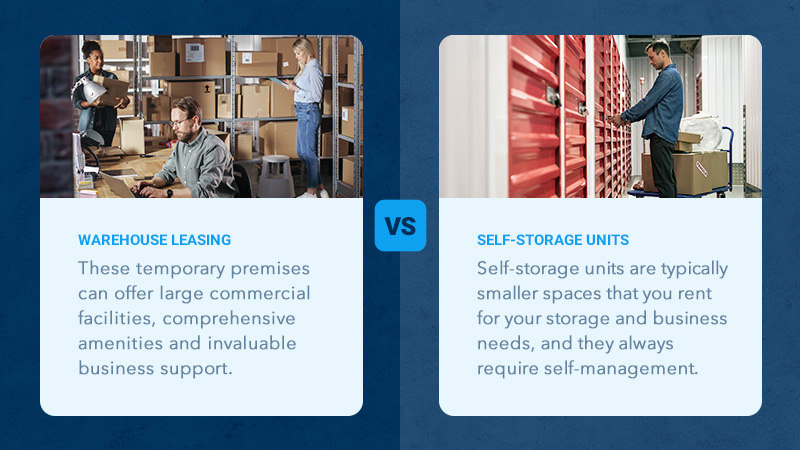
Assessing Self-Storage Options
Self-storage units are typically smaller spaces that you rent for your storage and business needs, and they always require self-management. Since self-storage units cater to smaller storage needs, they are easier to find in locations like cities and central business districts.
Types of Self-Storage Units
Self-storage units are no longer a one-size-fits-all model, with several options available:
- Traditional units: Traditional self-storage units are the most common type available, and they tend to be the most affordable and straightforward to rent. These self-storage units come in a variety of sizes and can be multistory or single-story buildings. Traditional self-storage units simply provide a space you can use for your business and storage — leaving all the logistics to you to manage.
- Climate-controlled units: Climate-controlled units have options for heating, ventilation, air conditioning and humidity levels. These units are ideal for storing sensitive items.
- Business storage units: Business self-storage units feature essentials like shelving and extra security measures that make it easier for companies to manage inventory and conduct business.
Advantages and Disadvantages of Self-Storage Options
Self-storage units can be a good solution for some businesses. Exploring their advantages can help you determine if this option could work for you:
- Savings: Since self-storage units typically have fewer features and are self-managed, renting a unit can offer reduced overheads that help you control operating costs.
- Easy contracts and flexibility: With a self-storage unit, you are generally only paying for a space and not for any additional services or features. This can help simplify your agreement and provide the flexibility of short-term or month-to-month rentals.
- Locations: Many self-storage units are located in or near cities, which can be more convenient and accessible for some business owners.
On the other hand, some of the cons of self-storage units for businesses include:
- Fewer features and services: Business self-storage units often have limited features apart from the essentials like electricity, running water and shelving. While some may offer more specialized facilities, there are no additional business services like conferencing, HR and marketing support and inventory management services.
- Varying security levels: Self-storage units generally have some degree of security but may not offer the level a business needs to protect invaluable inventory.
- Less space: Self-storage units are not as big and spacious as warehouses. While this lowers monthly costs and makes them accessible, it does make growth and scalability challenging.
- Logistical challenges and additional costs: Managing your business from a self-storage space can be challenging without additional support and services that leased warehouse spaces over. It is entirely up to you to manage every aspect of your inventory and logistics, including receiving deliveries and loading and unloading goods.
Warehouse vs. Self-Storage Rental
Depending on your business requirements and your goals, warehouse and self-storage solutions can both be excellent options.
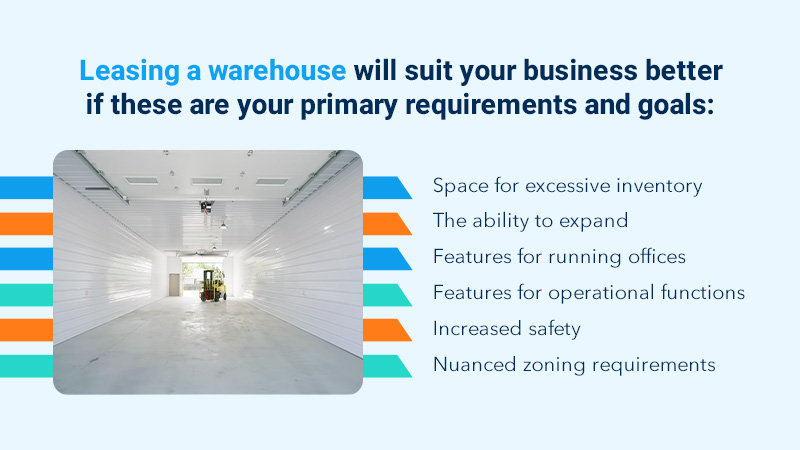
Leasing a warehouse will suit your business better if these are your primary requirements and goals:
- Space for excessive inventory
- The ability to expand
- Features for running offices
- Features for operational functions
- Increased safety
- Nuanced zoning requirements
Meanwhile, a self-storage unit can be an effective solution for any of the following needs:
- A cost-effective storage solution
- Limited inventory
- Short and flexible rental agreements
- The ability to manage your own inventory and logistics
Contact RISE Commercial District to Lease Warehouse Space
There are many unique advantages of self-storage units and managed warehouses. However, leasing a warehouse is better suited to commercial business owners who need professional services and solutions.
RISE Commercial District delivers versatile, cost-effective business storage facilities and solutions for various inventory and operational needs. Our secure and spacious warehouse leases provide you with free electricity, shipping and receiving services, video monitoring, climate control and 24/7 access.
We also have a competitive edge by offering flexible leasing options, from month-to-month to one- to two-year terms. By choosing our warehouse storage, you can focus on your business and have peace of mind knowing that our all-inclusive pricing and property management services support your day-to-day needs. Contact us today to explore our unique hybrid solutions tailored to your business or request a free quote.
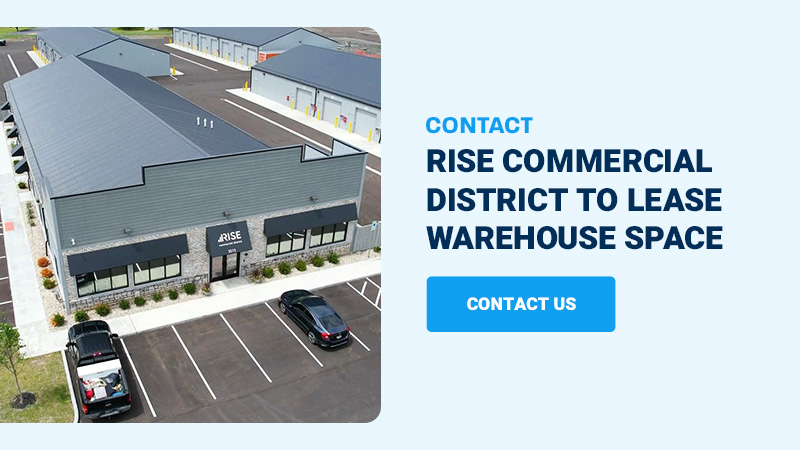
Frequently Asked Questions
Which Storage Solution Is Better for Small Business Inventory?
Both self-storage and warehouse leases can work for small business inventory — the key to this decision is exploring other essential factors. If cost is your primary concern, a self-storage unit could serve small business inventory. However, if you aim to grow your inventory and would like support in managing it, a flexible warehouse lease is the better choice.
What Types of Businesses Should Lease Warehouse Spaces?
Warehouse spaces suit an extensive range of businesses, from startups to established companies. Leasing a warehouse allows you to accommodate small- and large-scale companies with office spaces, amazing business support, additional space for inventory and operations, and top-notch logistics.
What Is the Main Consideration if I Want to Lease Storage Space?
While there are many important considerations when choosing a storage space, zoning is a significant factor. Many self-storage units may not have the correct zoning for operating a business. Since warehouse spaces are primarily aimed at the commercial sector, they are more likely to have the correct zoning. However, there can be limitations and exclusions that prevent you from operating businesses like gyms and automotive, woodworking and welding shops.

